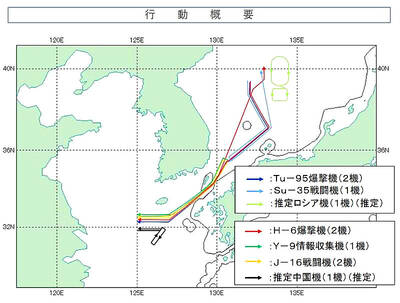The US State Department has approved a license for Honeywell International Corp to provide Taiwan with US$1.1 billion worth of engines for Taiwan’s Indigenous Defense Fighter.
But sources in Washington were quick to distinguish that sale, which extends a previously-issued license, from the nine-month-old freeze on sales of major weapons systems to Taiwan, which is still in force.
The license for the engines was approved as a commercial sale — which is regulated primarily by the State Department — as opposed to a foreign military sale, which involves the State Department, the Pentagon and other agencies of the US government.
Notifications to Congress of Foreign Military Sales are handled by the Defense Security Cooperation Agency, a unit of the Pentagon. The freeze has halted those sales in their tracks all year.
In a letter notifying the Senate Foreign Relations Committee dated Aug. 4, but which came to light only this week, the department said it has approved the contract for Honeywell’s wholly owned subsidy, International Turbine Engine Company, to manufacture components for the TFE 1042 engines for Taiwan’s Aerospace Industrial Development Corp (AIDC), which is developing the aircraft.
The US company was supplying the engines to AIDC under an earlier contract valued at US$997 million, and the new authorization will bring the total value of the contract to US$2.1 billion, the department’s letter of transmittal, signed by acting Assistant Secretary of State for Legislative Affairs Matthew Reynolds said.
“This new agreement will bring all parties into compliance with current Department of State policies and procedures,” the notice said, a copy of which the Taipei Times obtained on Friday.
“The United States Government is prepared to license the export of these items having taken into account political, military, economic, human rights and arms control considerations,” Reynolds wrote in the notice.
The agreement will terminate on May 31, 2017.
Despite the notification, the fate of eight major packages of weapons systems to Taiwan remains in limbo, with no firm indication that the sales will be unfrozen even though they were authorized by US President George W. Bush in April 2001, and the Legislative Yuan approved funding for them last year.
However, the president of the US-Taiwan Business Council Rupert Hammond-Chambers, representing US defense contractor firms that will largely supply the weapons, told the Taipei Times on Friday that he was “optimistic” the sales, with a value of up to US$12 billion, would be unfrozen soon.
He said he felt confident that the Bush administration would send the needed notification to Congress by Sept. 26, the date Congress is scheduled to adjourn its regular session, allowing enough time for a contract to be signed by the end of the year.
The weapons packages, which have been held up since last December, include anti-tank missiles, Apache helicopters, Patriot PAC-3 anti-missile batteries, P-3C anti-submarine aircraft, diesel-powered submarines and sea-launched Harpoon missiles.

Theaters and institutions in Taiwan have received 28 threatening e-mails, including bomb threats, since a documentary critical of China began being screened across the nation last month, the National Security Bureau said yesterday. The actions are part of China’s attempts to undermine Taiwan’s sovereignty, it said. State Organs (國有器官) documents allegations that Chinese government officials engage in organ harvesting and other illegal activities. From last month to Friday last week, 28 incidents have been reported of theaters or institutions receiving threats, including bomb and shooting threats, if they did not stop showing the documentary, the bureau said. Although the threats were not carried out,

The Mainland Affairs Council (MAC) on Friday condemned Chinese and Russian authorities for escalating regional tensions, citing Chinese warplanes crossing the Taiwan Strait’s median line and joint China-Russia military activities breaching South Korea’s air defense identification zone (KADIZ) over the past two days. A total of 30 Chinese warplanes crossed the median line of the Taiwan Strait on Thursday and Friday, entering Taiwan’s northern and southwestern airspace in coordination with 15 naval vessels and three high-altitude balloons, the MAC said in a statement. The Chinese military also carried out another “joint combat readiness patrol” targeting Taiwan on Thursday evening, the MAC said. On

The Mainland Affairs Council (MAC) yesterday confirmed that Chinese students visiting Taiwan at the invitation of the Ma Ying-jeou Foundation were almost all affiliated with the Chinese Communist Party (CCP). During yesterday’s meeting convened by the legislature’s Foreign Affairs and National Defense Committee, Democratic Progressive Party (DPP) Legislator Michelle Lin (林楚茵) asked whether the visit was a way to spread China’s so-called “united front” rhetoric, to which MAC Deputy Ministry Shen You-chung (沈有忠) responded with the CCP comment. The MAC noticed that the Chinese individuals visiting Taiwan, including those in sports, education, or religion, have had increasingly impressive backgrounds, demonstrating that the

MILITARY EXERCISES: China is expected to conduct more drills in the region after President William Lai’s office announced he would stopover in Hawaii and Guam China is likely to launch military drills in the coming days near Taiwan, using President William Lai’s (賴清德) upcoming trip to the Pacific and scheduled US transit as a pretext, regional security officials said. Lai is to begin a visit to Taipei’s three diplomatic allies in the Pacific on Saturday, and sources told Reuters he was planning stops in Hawaii and the US territory of Guam in a sensitive trip shortly after the US presidential election. Lai’s office has yet to confirm details of what are officially “stop-overs” in the US, but is expected to do so shortly before he departs, sources